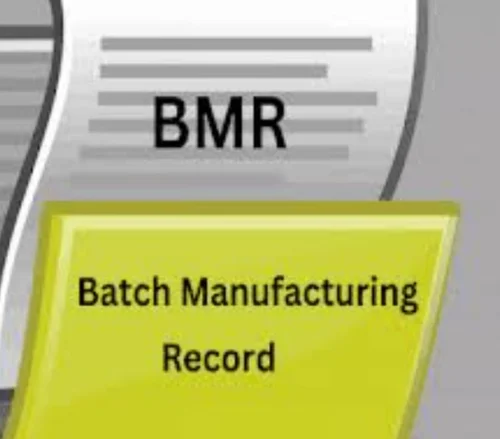The Batch Manufacturing Record (BMR) typically consists of the following components:
Header Section
1. Batch Number
2. Product Name
3. Product Code
4. Manufacturing Date
5. Expiration Date
6. Batch Size
Product Information
1. Formula/Recipe
2. Bill of Materials (BOM)
3. Raw Material Specifications
4. Packaging Specifications
Manufacturing Process
1. Production Steps (e.g., weighing, mixing, filling)
2. Equipment Used
3. Operating Parameters (e.g., temperature, pressure)
4. Process Control Data (e.g., pH, conductivity)
Quality Control
1. In-Process Control (IPC) Results
2. Final Product Testing Results
3. Certificates of Analysis (CoA)
4. Quality Control Checklists
Packaging and Labeling
1. Packaging Materials
2. Labeling Information
3. Packaging Process Steps
4. Label Verification
Release and Distribution
1. Batch Release Authorization
2. Release Certificate
3. Distribution Records
4. Shipping Information
Deviation and Corrective Action
1. Deviation Reporting
2. Corrective Action/Preventive Action (CAPA)
3. Root Cause Analysis (RCA)
Signatures and Approval
1. Manufacturer’s Signature
2. Quality Assurance (QA) Signature
3. Approval Dates
Attachments and References
1. Supporting Documents (e.g., certificates of compliance)
2. Standard Operating Procedures (SOPs)
3. Regulatory Documents (e.g., FDA approvals)
Electronic BMR (eBMR) Components
1. Electronic Signatures
2. Timestamps
3. Audit Trails
4. Data Integrity Checks
These components ensure that the BMR provides a comprehensive record of the manufacturing process, quality control, and release of the batch.
The specific components may vary depending on industry, regulatory requirements, and company-specific needs.
